Mangaluru, Jan 7: Amidst sporadic communal attacks and inflammatory speeches by politicians, the people of Ullal region have once again showed the world that they are the standard-bearers of peace, communal harmony and brotherhood.
On Friday, Muslim brethren in Ullal showed an exemplary gesture that herald the message of communal harmony. While members of the Hindu community were celebrating annual festival at Sri Ullalthi Dharma Arasara Temple, Uliya in Ullal, Muslims in the region welcomed devotees by offering fruit juice. Muslim brethren not only offered soft drinks to Hindu devotees, but also extended festival wishes.
In fact, the occasion was Prathishte - Brahmakalashotsava and Dharma Nadavali Mahotsava of Sri Ullalthi Dharma Arasara Temple, which is one of the prominent Hindu shrines in the region.
The initiatives to offer fruit juice and welcome Hindu devotees to the festival was taken by the management committee of Sayyid Madani Ullal Darga, which is one of the famous Muslim shrine of South India. Minister for food, civil supplies and consumer affairs U T Khader too was behind the initiative as the region comes under his constituency - Mangaluru. Further, Khader also hails from the same place.
The initiative was well-praised by people in general and the police department in particular. Usually, police department is at the receiving end whenever incidents of communal clashes and murders report in Ullal.
Deputy Commissioner of police (crime) M Sanjeev Patil posted the pictures of Muslim brethren distributing fruit juice to Hindu devotees at the temple premises.
"Better days of Hindu - Muslim unity are here. Muslim friends have distributed cold drinks to devotees at Ullalti Amma Temple. A good initiative by Muslim youths in Ullal which needs to be continued," said Patil.
;">




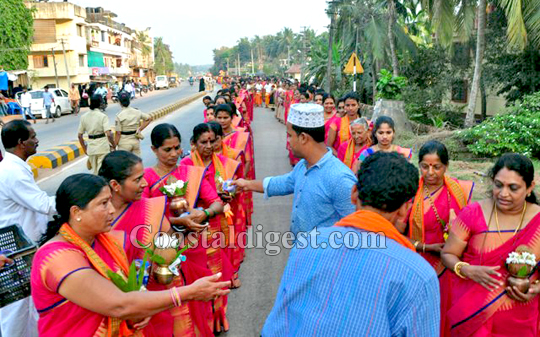
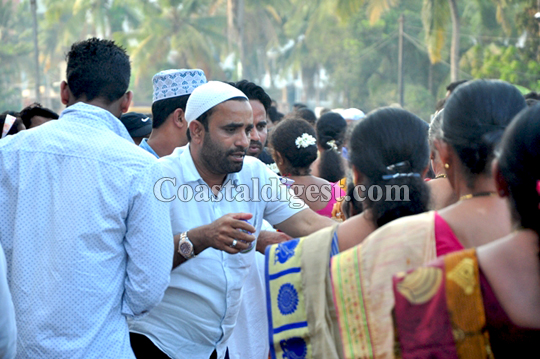
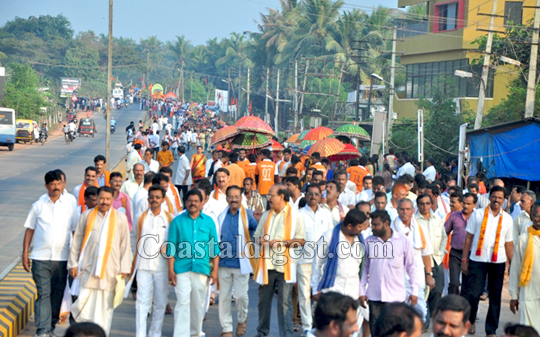
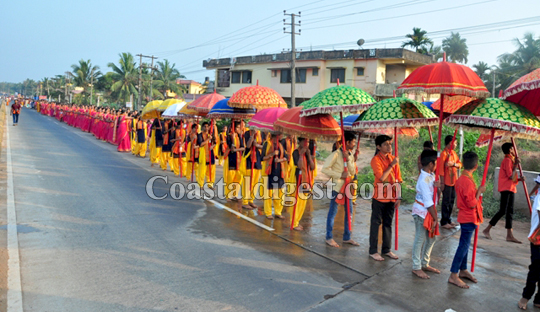
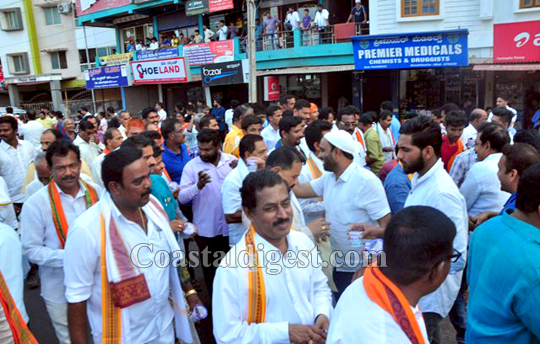
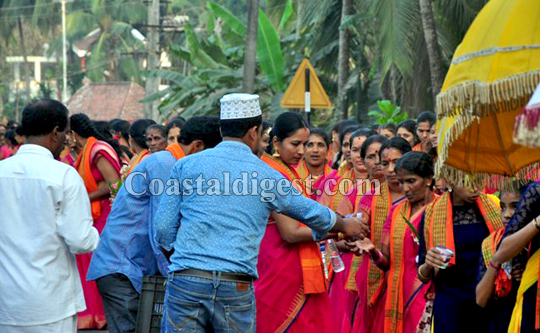
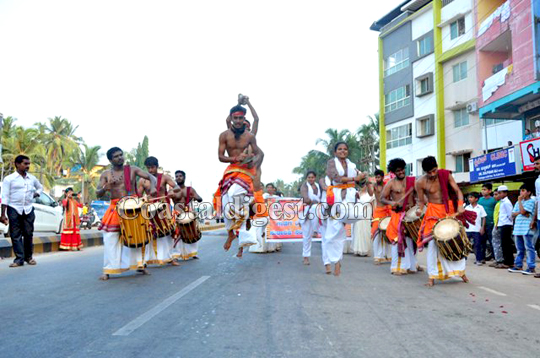
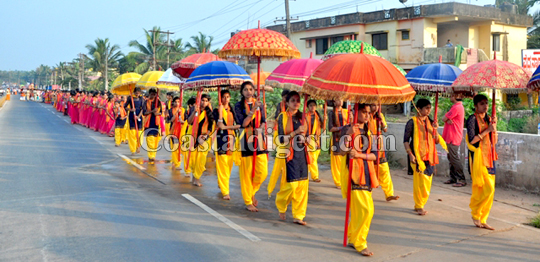
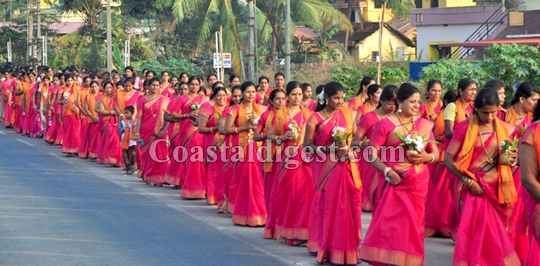
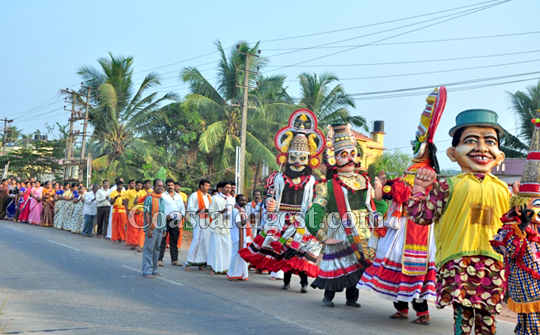
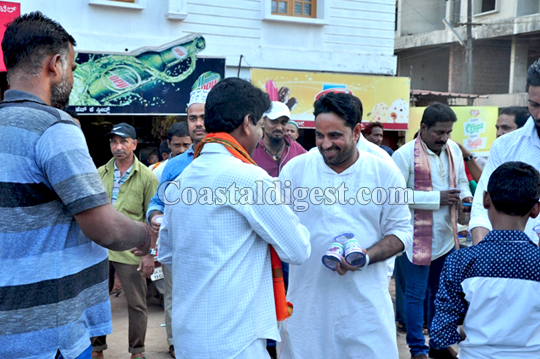
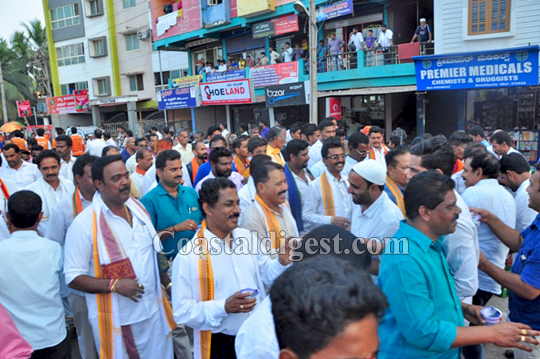
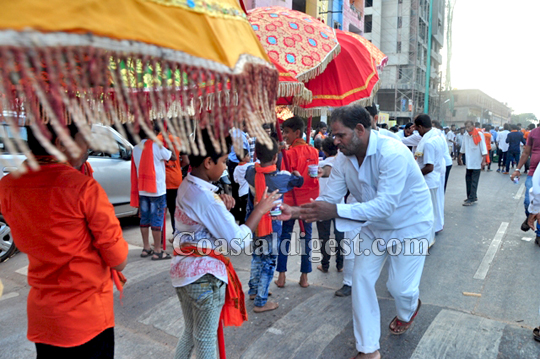
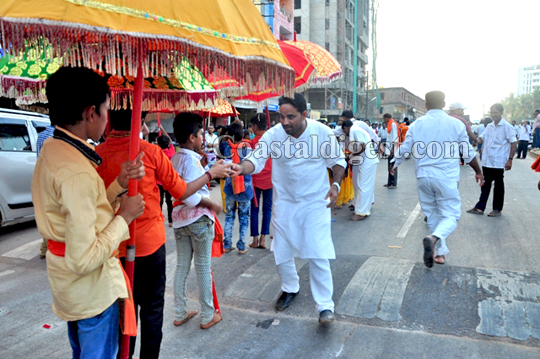
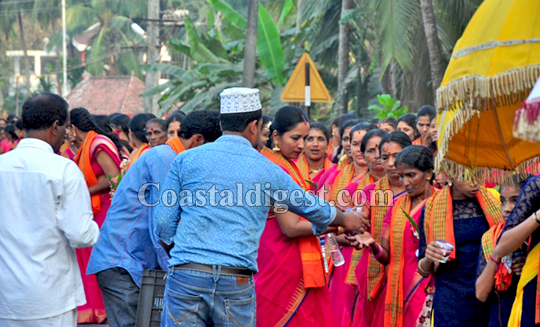
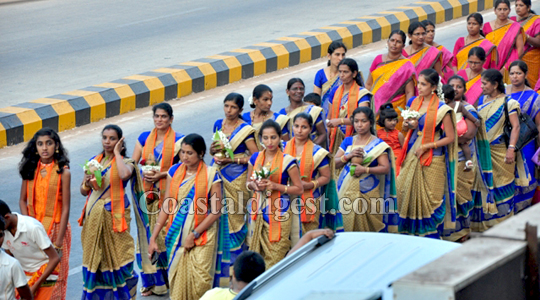
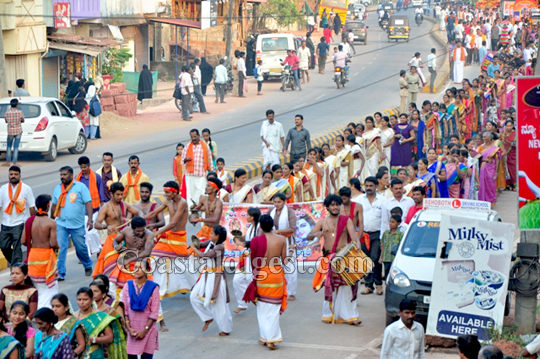

Comments
Dear Nazeer Ullal, i do not agree with your comments. Please try to be good to others if you are a real Muslim. Islam does not spread hate. Be a model to others and dont let others to have bad image about islam and muslims. In case you cant do anything good, please dont hate anyone who does good job. If you cant appreciate them, please do not hate them.
WE are human first....religion came afterwards....good gesture people of Ullal.....keep doing...May God bless.....
@nasser Ullal
Islam is peace and helping. A man who done bad things. And he had one good habit like feeding dogs. If Allah wills he might go to heaven.
There is no guarantee that a man pray 5 times. And his heart is full of hatred. T
@NAZEER ULLAL, AL JUBAIL KSA.... like this people should be hanged no rights to stay in india. always front to disturb the peace of society.
Nazeer Ullal,this is also a way of spreading love in society which is missing....Our Prophet had allowed Christians to pray in Masjid e Nabwi in Madina. Please spread love. Humanity is important.
Ullal people's surgical strike against a terrorist who threatened to set Dakshina Kannada on fire.
wow two eyes are not enough to see.. that too in ullal.
no words to say, just awesome.,
Integrity! good work by good muslims.
hatsoff muslim brothers! indeed a great initiate for the happy society.
good job muslim brothers, will unite to make india better.
wow just wonderful to see this, amazing!!!
nowhere can be seen like this, this only happens in mangalore.
this is not islam.....instead of serving them, the idol worshippers, let them serve the needy poor people. no where is mr. abdul rasheed haji the president of darga ullal?????
Add new comment